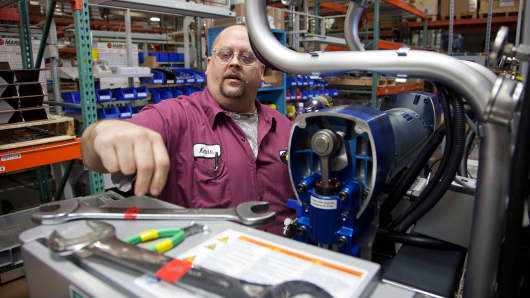Pressure on services and manufacturing activity in the euro zone eased more than expected in June, a survey showed on Thursday, and while a slide in new orders showed a full recovery is a long way off, analysts said the signs point to a more moderate downturn.
Although activity continued to decline overall, the third consecutive monthly rise in the PMI in June indicated the rate of contraction is easing.
Markit's Flash Euro Zone Composite Purchasing Managers' Index rose to 48.9 in June from May's 47.7, the highest since March 2012, beating analysts' forecasts.
New business fell at the slowest rate for five months, the rate of decline having eased for the third month in a row. New orders in manufacturing fell only marginally, registering the smallest decline for two years, while the services sector saw the smallest fall for five months, Markit said.
"This rounds off another disappointing quarter for the euro zone economy. We are expecting GDP, if in-line with these numbers, will contract by 0.2 percent which is similar to what we saw in the opening quarter," Rob Dobson, senior economist at Markit told CNBC.
"But there are some reassuring signs. We have seen that rates contraction (in the PMI surveys) on a monthly basis ease in the second quarter, pointing to more stability in Q3 (the third quarter), and maybe even eke out a little bit of growth in Q4, so its not all bad news," said Dobson.
Good news also came out of Germany and France, as Germany showed signs of growth and the rate of contraction eased in France and the periphery, which has been a big drag recent months, said Dobson.
Germany saw the largest drop in employment since January 2010, but job losses accelerated in France, the report found.
"Recently, doubts about the strength of the German economy had emerged again and expectations for this year were revised downwards. Maybe too early. Today's PMI adds to latest evidence from confidence indicators that the German economy has picked up steam again in the second quarter," Carsten Brzeski, senior economist at ING said with respect to the German figure.



